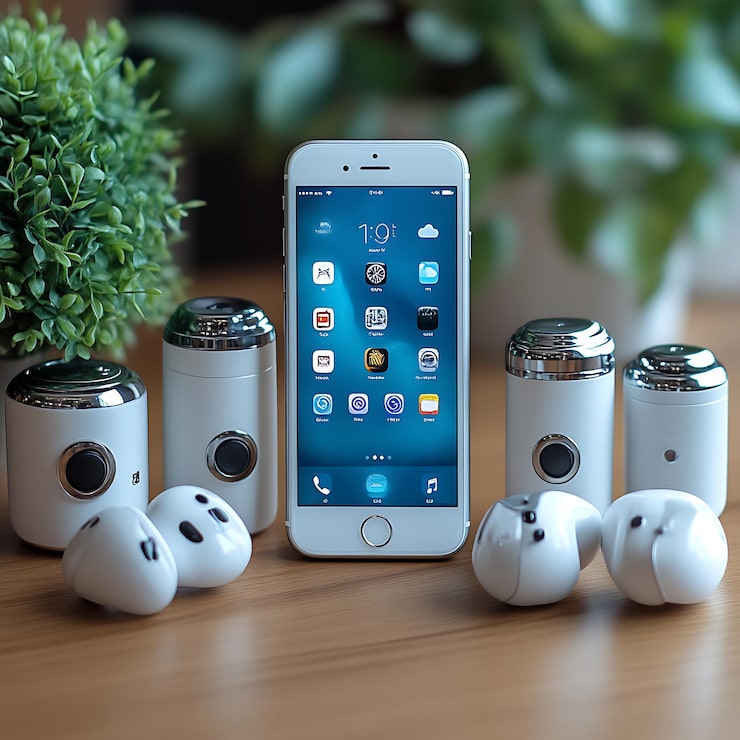The Apple vs. Android debate has been ongoing for over a decade — and in 2025, it’s more competitive than ever. Both ecosystems have evolved far beyond smartphones, shaping how we live, work, and connect.
But which ecosystem truly rules in 2025? Let’s break down the battle across innovation, performance, AI, and user experience.
1. Innovation and Technology
Apple continues to dominate with its integrated ecosystem, where every device — from the iPhone to the Vision Pro — connects effortlessly. Meanwhile, Android, powered by Google and global manufacturers, leads in hardware diversity and customization.
In 2025:
-
Apple focuses on AI-driven features like real-time translation and contextual Siri responses.
-
Android champions open innovation, allowing brands like Samsung, OnePlus, and Google Pixel to experiment with foldables, AI photography, and AR.
Verdict: Android wins for innovation diversity, but Apple stays unmatched in software synergy.

2. AI and Personalization
AI is at the heart of both ecosystems in 2025. Apple’s Apple Intelligence (introduced in 2024) brings privacy-focused AI to iPhones, iPads, and Macs — enhancing writing, communication, and image editing.
Android counters with Google Gemini AI, seamlessly integrated across apps like Gmail, Maps, and Assistant. It’s powerful, context-aware, and supports a wider range of devices.
Verdict: Android wins for smarter AI flexibility, while Apple scores for privacy and reliability.
3. Device Performance and Longevity
Apple’s custom M-series and A-series chips deliver unmatched performance, efficiency, and longevity. Even a three-year-old iPhone or MacBook runs smoothly.
Android has caught up — especially with Qualcomm’s Snapdragon X Elite and Google’s Tensor G4 chips. Yet, software fragmentation still causes performance gaps between brands.
Verdict: Apple leads with consistency and long-term value.
4. App Ecosystem and Compatibility
Apple’s App Store remains a curated and secure environment, though stricter policies have frustrated developers. Android’s Google Play Store and third-party app support, however, offer greater flexibility and innovation.
In 2025, Apple is gradually opening to alternative app stores in compliance with global regulations — but Android continues to offer broader compatibility across devices and platforms.
Verdict: Android wins on flexibility; Apple wins on quality control.
5. Security and Privacy
Privacy remains Apple’s strongest weapon. From on-device AI processing to app tracking transparency, users feel safer in Apple’s ecosystem.
Android has made progress with end-to-end encryption and improved Play Protect AI, but open-source flexibility still comes with potential risks.
Verdict: Apple wins for unmatched privacy and security integration.
6. User Experience and Design
Apple’s user experience feels refined, polished, and cohesive across devices. The synergy between iPhone, Mac, Apple Watch, and iPad remains unmatched.
Android’s advantage lies in customization — users can tailor everything from widgets to launchers, themes, and AI assistants.
Verdict: Apple dominates in seamless experience; Android excels in personalization.
7. Ecosystem Integration
Apple’s greatest strength is its closed, connected ecosystem. Features like Universal Control, AirDrop, and iCloud Continuity make device switching effortless.
Android counters with Google’s cross-platform strategy, connecting smartphones, Chromebooks, and smart home devices — but the experience varies by manufacturer.
Verdict: Apple still leads in smooth ecosystem integration.

Conclusion
In 2025, the Apple vs. Android rivalry is closer than ever.
| Category | Winner |
|---|---|
| Innovation | Android |
| AI Integration | Android |
| Performance | Apple |
| Privacy | Apple |
| Flexibility | Android |
| Ecosystem Integration | Apple |
Final Verdict:
If you value privacy, longevity, and simplicity, Apple rules.
If you prefer freedom, customization, and innovation, Android leads the charge.
In the end, the “better” ecosystem depends on how you use technology not who builds it.
